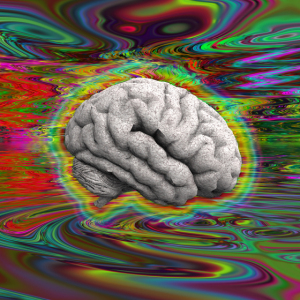por
Lauren Dubinsky, Senior Reporter | December 15, 2015
LSD may be a treatment option for addiction and other disorders including treatment-resistant depression, according to a new study conducted by researchers at Imperial College London. The results were presented at the annual meeting of the American College of Neuropsychopharmacology (ACNP) in Florida.
LSD works by reducing the extent that nerve cells within a brain network fire simultaneously and also seems to lessen the extent that separate brain networks fire off in different patterns. Basically, LSD interferes with the patterns of activation in the different brain networks that bring about human thought and behavior.
The researchers performed fMRI brain scans on 20 healthy individuals who had ingested LSD. Over the course of six hours they mapped brain activity by detecting changes in blood flow. They also had the individuals undergo magnetoencephalography (MEG), which is a technique that images brain function by recording magnetic fields generated by electrical currents that occur in the brain.



Ad Statistics
Times Displayed: 128996
Times Visited: 7335 MIT labs, experts in Multi-Vendor component level repair of: MRI Coils, RF amplifiers, Gradient Amplifiers Contrast Media Injectors. System repairs, sub-assembly repairs, component level repairs, refurbish/calibrate. info@mitlabsusa.com/+1 (305) 470-8013
With the fMRI images, the researchers found that LSD led to a more chaotic brain state, which is similar to what is presented in a certain phase of psychosis. The nerve cells that were supposed to fire together within the network didn’t and the networks that are usually distinct began to overlap in their connectivity patterns.
The MEG test revealed a decrease in alpha waves across the brain. The MEG changes were highly correlated with visual hallucination, which suggest the when the individuals were on LSD, the visual system was tied more to the internal than the external world.
The researchers are currently evaluating the usefulness of a drug similar to LSD in treating addiction and other disorders. They are also investigating LSD’s usefulness in providing a human model of psychosis since it leads to changes in brain network behavior that’s similar to the early phase of psychosis.
Another study presented at the ACNP annual meeting found that a single dose of psilocybin, the main hallucinogenic component in "magic mushrooms", decreases anxiety and depression in patients diagnosed with life-threatening cancer.
Patients who receive a cancer diagnosis frequently experience debilitating anxiety and depression, but reports from the ‘60s and ‘70s have suggested the hallucinogenic drugs like LSD may alleviate those symptoms.
The researchers at Johns Hopkins University School of Medicine found that five weeks after receiving a high dose of psilocybin — enough to induce changes in perception and mystical-type experiences — patients reported lower anxiety and depression than patients who received a low dose. In addition, the patients were still experiencing positive effects at a six month follow-up.
Back to HCB News

